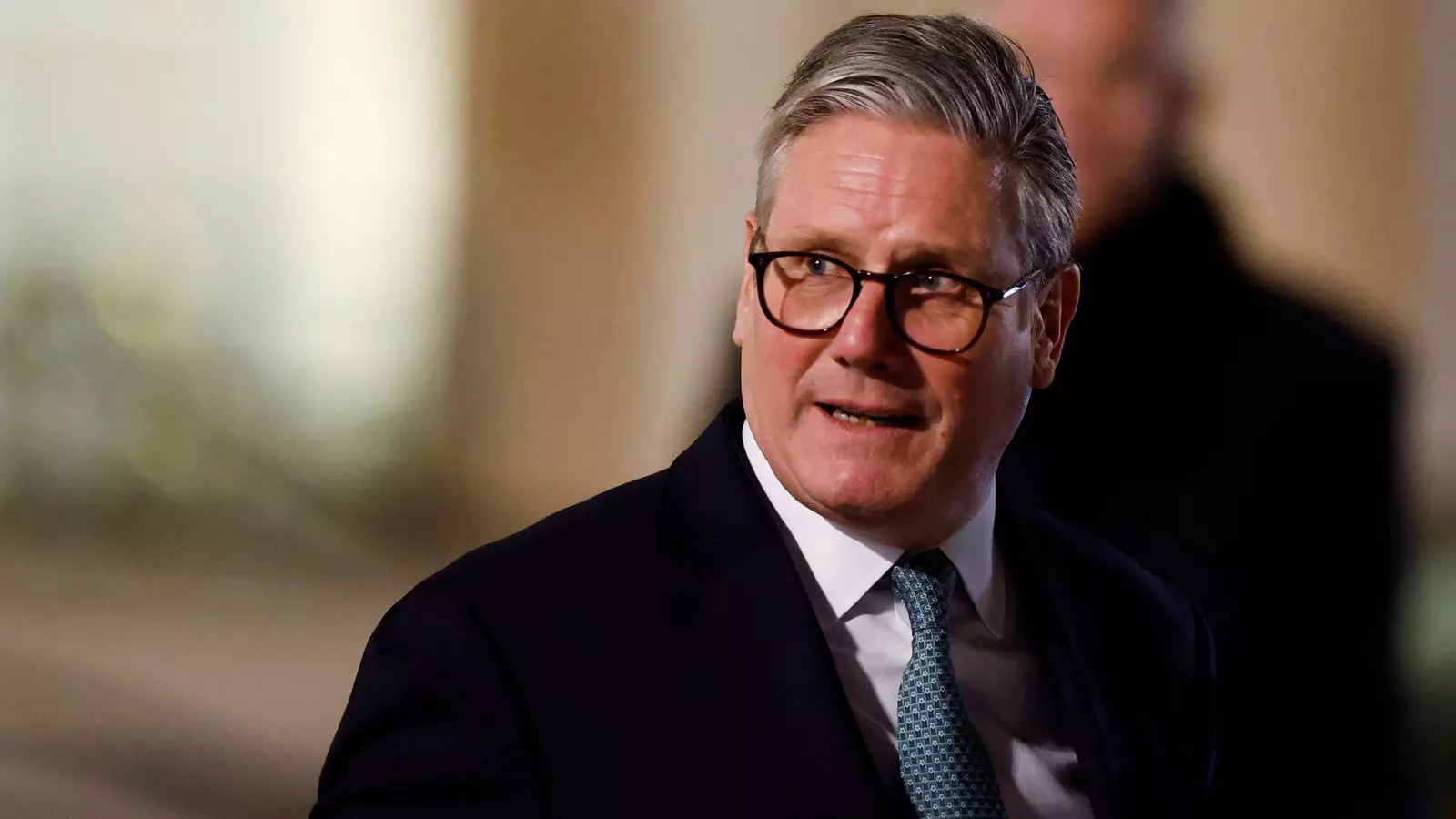The ongoing war in Ukraine has elicited a complex web of geopolitical responses, with leaders from around the globe weighing in on the crisis. As the situation evolves, calls for a robust international response intensify. Recently, UK leader Sir Keir Starmer drew attention to the need for serious security guarantees for Ukraine in light of the fragile peace talks and the potentially disastrous consequences of a poorly negotiated settlement. With Donald Trump openly criticizing Ukrainian President Volodymyr Zelenskyy and labeling him a “dictator,” the need for a united stance among Western leaders has become more pressing.
Starmer is set to meet with President Trump next week in Washington, poised to advocate for a renewed commitment to Ukraine. This meeting is crucial, given the delicate relations between the United States and Europe, particularly as Trump has positioned himself as a controversial figure regarding foreign policy and military support. Starmer’s assertion that peace can only be achieved through strength suggests that he fears that any leniency shown towards Russia could lead to a resurgence of aggression—something that could destabilize the entire region. His emphasis that any negotiation must prioritize Ukraine’s voice underscores the need for self-determination in the face of external pressures.
Starmer voiced concerns that a peace deal lacking solid mechanisms to prevent future Russian incursions would lead to a “disaster for everyone.” This statement highlights a key issue: the risk that a superficially peaceful resolution might lull nations into complacency, ultimately enabling further hostilities. He argues that security guarantees are essential not just for Ukraine but for the collective security of Europe, particularly as NATO’s credibility is intertwined with its commitment to defending its allies. The expectation that the United States will provide this assurance remains a vital aspect of any effective deterrence strategy against aggression from Russia.
In his address, Starmer also pointed to the United Kingdom’s responsibility within NATO and the urgent need to increase defence spending. With pressures mounting on European countries to take charge of their own security, Starmer’s commitment to raise the UK’s defense budget from 2.3% to 2.5% of GDP is a significant political move aimed at demonstrating leadership in the alliance. This financial commitment indicates recognition that maintaining a strong military presence is paramount for the safety of Europe in a post-conflict environment.
Additionally, as we approach the third anniversary of Russia’s full-scale invasion, the call for new sanctions against Russia highlights the various avenues leaders are exploring to counteract aggressions. UK Foreign Secretary David Lammy’s announcement about unveiling sanctions aimed at “turning the screws” on Russia reflects a multipronged strategy that includes economic pressure as well as direct military support for Ukraine. These sanctions could be a crucial element in reinforcing the international community’s resolve against Russian actions, but without Ukraine’s involvement in negotiations, there is a risk of alienating the very nation that stands at the front of this conflict.
As Starmer embarks on his diplomatic mission, the key takeaway is the necessity for unity among Western nations to safeguard Ukraine’s sovereignty. His advocacy for direct involvement of affected nations in peace talks and negotiations sets a precedent for future diplomatic engagements. With a formidable balance of military readiness and economic sanctions, European leaders can craft a lasting solution. The stakes are high: the security of Europe hangs in the balance, demanding a cohesive and robust response that aligns with the aspirations and rights of Ukraine.
In closing, Sir Keir Starmer’s positioning ahead of his discussions with Trump signals a critical moment for European security strategy. By pushing for strong guarantees and asserting the importance of Ukraine’s involvement, he aims not only for a resolution to the ongoing conflict but also for a strategic framework that can prevent future aggressions in Europe.


Leave a Reply